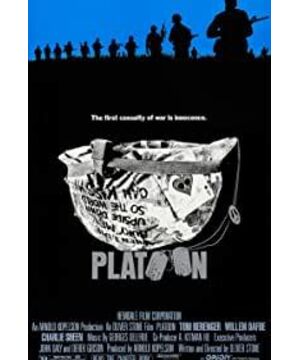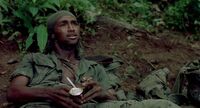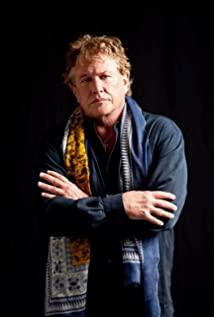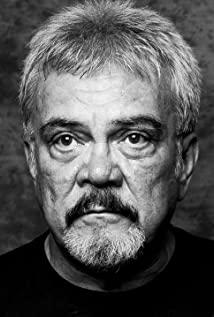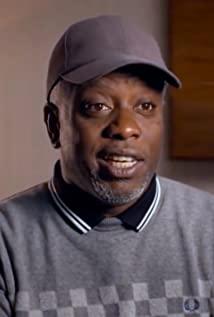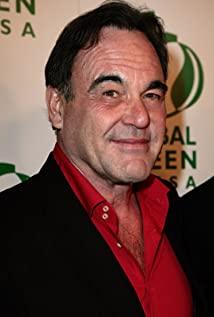Of course, this is not a movie about men's love at all, and it doesn't matter too much brotherhood. I think it talks about values, to be precise, it is probably the values of contemporary Americans. It put it in the environment of the Vietnam War, and through Elias and Barnes, two very different hostile characters, their attitudes towards war, humanity, and death, to insinuate the contradiction between the two values in the hearts of the Chinese people. From the perspective of the film, the protagonist chooses Elias, which represents the side of humanity, idealism and personal heroism; and kills the brutal, domineering and unscrupulous Barnes with his own hands. Individual heroism has always been affirmed in literary and artistic works from ancient times to the present, because it means superhuman abilities and a sense of responsibility to society and the collective. Natural talents are naturally beyond the reach of ordinary people, but there are also many abilities that can be cultivated through training, but they require perseverance. The performance of this ability requires courage and perhaps opportunity. But if the goal is set aside, wisdom, perseverance, and courage all become untargeted. If this goal becomes clear and certain it is inevitable, it becomes faith. To be given meaning to people's beliefs, it can be through both religious and social channels. I cannot understand religion. I can only talk about society carefully. If what a person does is beneficial to most people in the world, then he will be recognized by society. From a biological point of view, the satisfaction brought by such recognition is probably accompanied by the secretion of dopamine and the like. His motivation to continue doing similar things. Of course, this recognition can also come from a smaller group, or even just one person, but this kind of heroism is a bit narrow. But not everyone becomes a hero. Part of the reason is that they cannot be changed, such as limited natural conditions. Another reason is that there are so many satisfying things around that people cannot fully devote their energy to a cause. This is often related to the social atmosphere at the time. This is why it is easy to emerge heroes in war, because in extreme circumstances, people's goals are clear and unified. As for why heroism is fascinating, on the one hand, it is indeed beneficial to society. After thousands of years, people have naturally accepted and affirmed it; On the other hand, perseverance and courage are often what people lack, and people always have remnants of what they can't do. But when this kind of personal behavior threatens order, another voice will come to stop it. In this case, it is difficult to judge who is the larger beneficiary group. Leaping over order and saving others may cause more losses, but it is more feasible to maintain stability. But once the order is established, it is cruel and unforgiving. It does not want to hear opposition. It is like a tank, driving past without hesitation and smoothing all the bumps. In the film, Barnes represents this kind of power, power, dominance, and even annihilating humanity, but half of the soldiers still follow him. Some of them are extremists, just like Hitler’s die-hard fans at the time, and some are Out of fear. We can't say whether the two are right or wrong. At the end of the film, we also admit the coexistence of the two. Chris said that Elias and Barnes are like his two fathers. Although he finally killed Barnes with his own hands, this can be understood as a hatred for the helpless existence of order, but Barnes, who is deeply rooted in society and people's hearts, will not be eliminated and will continue to exist for a long time.
However, I still want to return to my obscenity willfully, immersed in him holding up a gun and running in the dense forest to pursue his figure, immersed in his firmness in avenging him, immersed in the starry night, he and him Sit together and say, look at those stars, they have no right or wrong, they are just there.
View more about Platoon reviews


